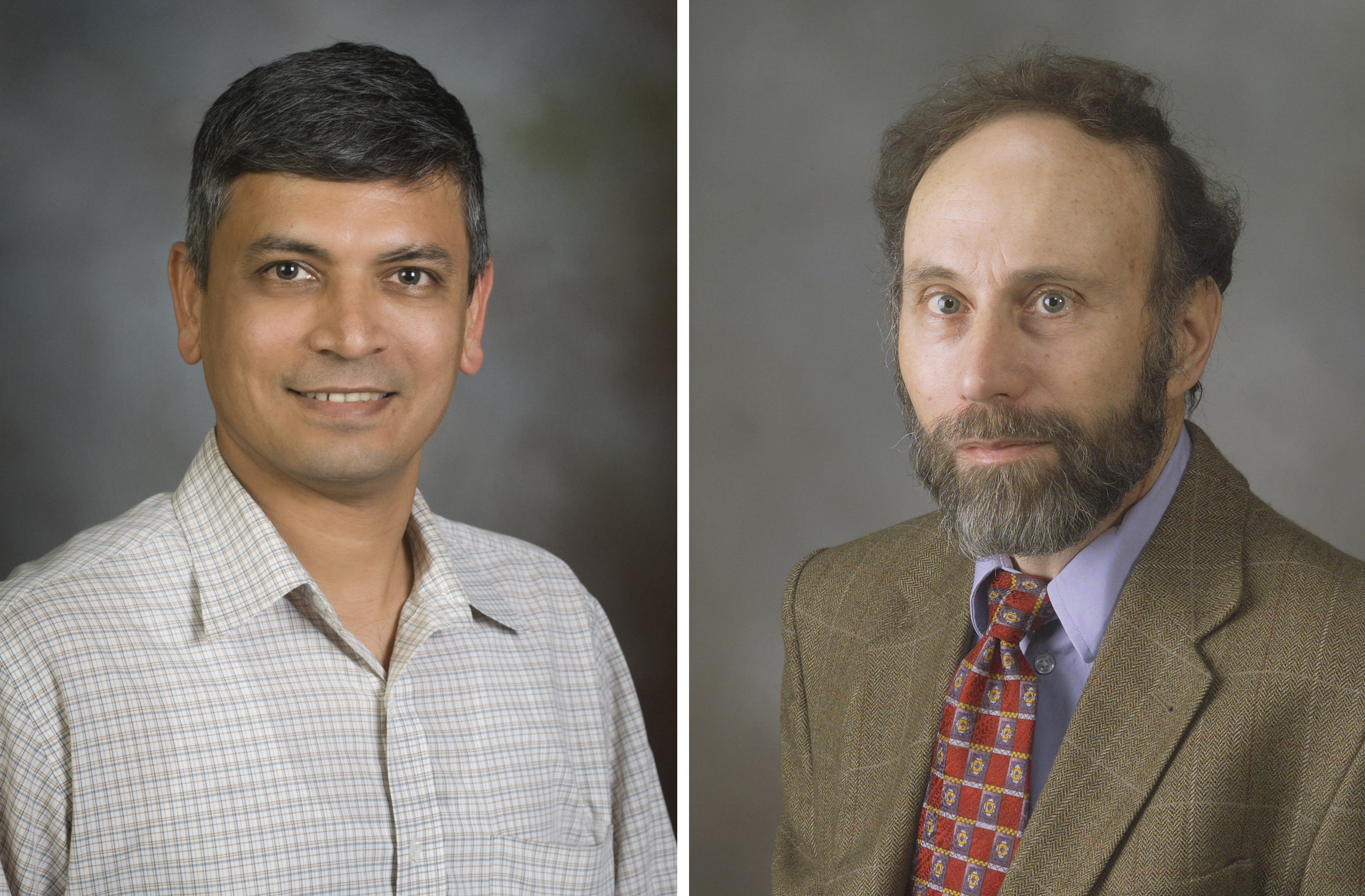Srinath Ekkad, Uri Vandsburger to lead Department of Energy study on combustion

Increasingly stringent environmental regulations are governing the release of pollutants into the world's atmosphere. To meet the world's needs to lower the levels of contaminants sent into the atmosphere, engineers face multiple problems of how to attain better energy efficiencies, yet lower toxic emissions.
During the past three decades, environmental regulations governing pollutant emissions have become increasingly stringent with the requirement of lower levels of released gases such as mono-nitrogn oxides (NOx), carbon monoxide, and unburned hydrocarbons.
At the same time, increases in turbine inlet temperatures are being pushed to attain higher overall efficiency in power generation turbines. Both the desire for better efficiency and the need for lower emissions have increased the demand for more efficient combustion systems.
The aircraft industry serves as a prime example of the problems facing engineers interested in improving climatic conditions. Many aircraft use gas turbine engines that produce their own pressurized gas, burning a fuel such as propane, natural gas, or kerosene. This exhaust from the thousands of planes flying daily is a major source of pollution.
New research led by mechanical engineering faculty members at Virginia Tech, Srinath Ekkad and Uri Vandsburger, should have a significant impact on the industrial gas turbine community and, in turn, the global climate.
The two researchers recently received a half a million dollar, three-year grant from the U.S. Department of Energy's Fossil Energy Turbine Systems research program to conduct advanced turbine technology research. Solar Turbines, a manufacturer of gas turbine engines, will provide matching money of $125,000 for three years.
Other companies involved in the project include: Siemens, Honeywell, GE Energy, Pratt & Whitney, Flow Serve, and Mainstream. Penn State, and Georgia Tech are also involved, as well as the National Research Council of Canada.
"The work is extremely important with the discovery and extraction of natural gas though fracking, resulting in a domination of natural gas fired plants coming on in the future," Ekkad, who holds the Commonwealth Professorship for Aerospace Propulsion Systems at Virginia Tech, said.
The Commonwealth Center for Advanced Propulsion Systems is collaboration between Virginia Tech, the University of Virginia, and Rolls-Royce, North America. It focuses on the development of innovative technologies for land, air, and sea-based power systems.
In total, the DOE funded 10 projects with an overall goal of developing solutions to specific technical challenges and barriers, enabling the development of advanced gas turbines and gas turbine-based systems that will operate reliably, cleanly, efficiently, and cost effectively when fueled with coal-derived hydrogen, synthesis gas (syngas) and natural gas fuels.
Specifically, Ekkad and Vandsburger are developing tests of what takes place inside a combustor, a critical component of a gas turbine, where the chemical reactions or burning, takes place. With improved accurate evaluations, they believe they can obtain more reasonable estimations of cooling requirements and lifetime expectancies.
While the rules protecting the environment have increasingly become more stringent, simultaneously, "increases in turbine inlet temperatures are being pushed to attain higher overall efficiency in power generation turbines. Both the desire for better efficiency and the need for lower emissions have reduced the amount of cooling air that the combustion engineer has available for combustor liner cooling.
"As combustors are designed to reduce emissions, there is insufficient liner cooling available to keep the combustor from attaining melting metal temperatures," Ekkad explained.
Today's industrial gas turbine combustor liners need to meet durability targets of 30,000 hours of use. Too high a temperature can cause liners to fail to meet this target. Engineers are concerned about such failures because estimations of convection heat load are "most difficult to estimate accurately" due to the rapid changes that occur with the gases involved in the heat transfer process, Ekkad said.
"Our study is the first comprehensive work focusing on gas side heat transfer of combustor liners with reacting flow,' Vandsburger, who obtained his doctorate from Princeton University, asserted.
Virginia Tech's new $3.5 million Advanced Propulsion and Power Laboratory at the University's Corporate Research Center was built to facilitate this type of research.
Ekkad joined the mechanical engineering faculty in 2007 after nine years at Louisiana State University and two years as a senior project engineer in the Turbines Department at Rolls-Royce Allison Engine Co. in Indianapolis. He is the co-author of "Gas Turbine Heat Transfer and Cooling Technology," an influential book in his field of study.
He also serves as a director of the Center for Clean Coal Energy, part of Virginia Tech's Institute for Critical Technology and Applied Science, and is co-directing the institute's Global Laboratory for Thermal Phenomena.
Vandsburger directs the Virginia Active Combustion Control Group/Reacting Flow Lab. He has been at Virginia Tech since 1988.








